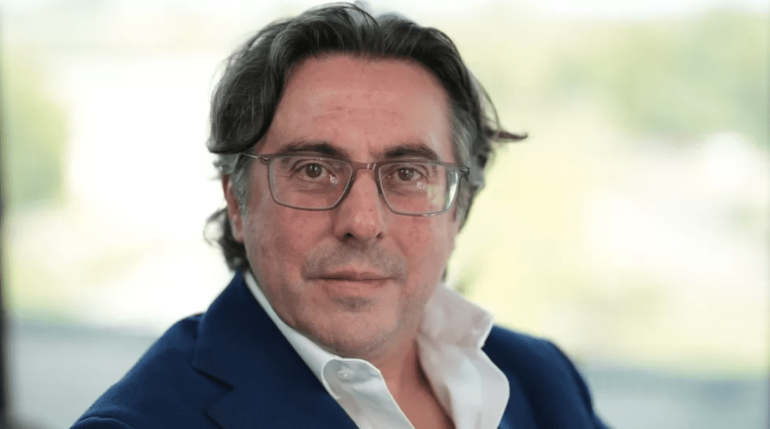TL;DR:
- Professor Andrew Hopkins founded Exscientia, a company utilizing AI for life-saving drug development.
- Exscientia focuses on COVID prevention and precision-based cancer treatments.
- Hopkins’ early experiences in Port Talbot steelworks influenced his scientific journey.
- AI enables a 90% reduction in experiments, expediting drug development.
- Precision medicine methods and AI show promise in individualized patient responses.
- AI is seen as a tool to empower scientists rather than replace them.
- Exscientia’s growth demonstrates AI’s potential for creating new jobs and opportunities.
Main AI News:
In the realm of life-saving drug development, one visionary individual has harnessed the potential of Artificial Intelligence (AI) to revolutionize the landscape. Meet Professor Andrew Hopkins, the mastermind who, as a student, conceptualized an innovative approach that would reshape the creation of life-saving medications. Fast forward 16 years, and he now heads Exscientia, a pioneering company leveraging AI for drug discovery and development. This cutting-edge endeavor is not only focused on preventing Covid but is also dedicated to precision-based cancer treatments and a multitude of other groundbreaking projects.
Professor Hopkins’ journey to becoming a trailblazer in the pharmaceutical industry began in Port Talbot, where his parents toiled in factories. Before embarking on his academic path, he too worked in the steelworks of his hometown. It was during his time pursuing a PhD at Oxford University that he forged the connection between computers and expediting the drug development process. Reflecting on this pivotal moment, he recollects, “I was studying how to design new HIV drugs back in the mid-90s. Coming home from the lab at about two in the morning, it struck me – how could we invent drugs in a far more efficient manner than what we do now? The idea of how we could potentially use computers to revolutionize the way we invented drugs really stuck with me and has stayed with me throughout my career over the next 20-25 years.”
Growing up in the shadow of the Port Talbot steelworks ignited his passion for science. His early experiences, working alongside his parents in the steel industry, laid the foundation for his scientific pursuits. “From the age of 16, I worked as a scientist in the steelworks every summer. I was lucky enough that they sponsored me and I got a scholarship to go to university where I did chemistry at Manchester. When I graduated, I was offered a job and went back to the steelworks. It was an important part of my early education as a scientist, and in fact, I learned a lot about business there as well.“
AI has garnered its fair share of controversy, with calls for greater regulation. However, Professor Hopkins firmly believes in its potential to revolutionize healthcare. He highlights the astronomical costs associated with drug development, with a staggering 96% failure rate for drugs entering clinical trials. He elucidates, “It takes 15 years to go from an idea to a drug to get approval to become a medicine for patients. If we use AI, we can now conduct 90% fewer experiments in what we need to make, test, and optimize a drug than traditionally has been the case. We’re already showing that the drugs we’ve got in the clinic have allowed us to run projects in about 18 months compared to a traditional process of around four years.“
Professor Hopkins is on a mission to empower scientists. He emphasizes, “A scientist can work in a big pharma company for their entire career and never discover a drug. What we want to do is to enable our scientists to see a drug moving forward into the clinic and hopefully then to patients multiple times in their career.“
Recently, Exscientia employed AI in a clinical trial, utilizing its precision medicine approach on a blood cancer patient’s biopsy sample. Professor Hopkins elaborates, “We tested it against nearly 140 different medicines, which is far more than you’d ever test a patient on. That allowed us to really understand at an individual level how a patient responded. We can then provide that information to a physician as a new recommendation about which drugs should be taken based on an individual’s response.”
While concerns persist about AI causing job losses, Professor Hopkins views it as “potentially a new industrial evolution.” Exscientia has grown to employ nearly 500 individuals, with over 350 based in the UK and offices and labs spanning the globe. He dispels the notion that AI possesses human characteristics, emphasizing that it’s fundamentally mathematics. He underscores, “What it doesn’t change is what we are as humans, and it doesn’t change the need for empathy and sympathy and understanding in all our human relationships.“
Conclusion:
Professor Andrew Hopkins’ pioneering work with AI in drug discovery has the potential to transform the pharmaceutical industry. By significantly reducing costs and accelerating drug development, AI-driven solutions like those offered by Exscientia could lead to faster, more cost-effective treatments, ultimately benefiting the healthcare market and patients worldwide.

